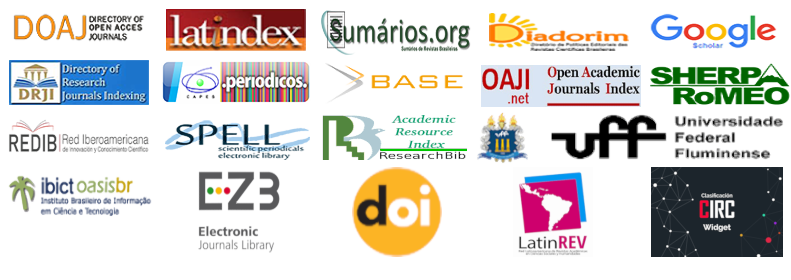Diretrizes para a realização da pesquisa de campo: suas origens e sua aplicação prática
DOI:
https://doi.org/10.20401/rasi.11.1.1034Keywords:
RASI, Pesquisa de CampoDownloads
References
Aguinis, H., & Solarino, A. M. (2019). Transparency and replicability in qualitative research: The case of interviews with elite informants. Strategic Management Journal, 40(8), 1291–1315. https://doi.org/10.1002/smj.3015
Aguinis, H., Hill, N. S., & Bailey, J. R. (2021). Best practices in data collection and preparation: Recommendations for reviewers, editors, and authors. Organizational Research Methods, 24(4), 678–693. https://doi.org/10.1177/1094428119836485
Bardin, L. (1977). Análise de conteúdo. Lisboa: Edições 70.
Calás, M. B., & Smircich, L. (1999). Past Postmodernism? Reflections and Tentative Directions. Academy of Management Review, 24(4), 649–672. https://doi.org/10.5465/amr.1999.2553246
Cialdini, R. B. (1993). Influence (rev): The Psychology of Per suasion. New York: HarperCollins.
Cialdini, R. B., & Paluck, E. L. (2014). The role of field research in social psychology. In J. M. Levine (Ed.), Handbook of field research, 111–123. Sage Publications.
Cicourel, A. (1969). Theory and method in field research. In Method and measurement in sociology, 39–72. Nova York: The Free Press.
Emerson, R. M., Fretz, R. I., & Shaw, L. L. (2011). Writing ethnographic fieldnotes. University of Chicago Press.
Gehman, J., Glaser, V., Eisenhardt, K., Gioia, D., Langley, A., & Corley, K. (2018). Finding theory-method fit: A comparison of three qualitative approaches to theory building. Journal of Management Inquiry, 27(3), 284–300. https://doi.org/10.1177/1056492617706029
Goldenberg, M. (1997). A arte de pesquisar: Como fazer pesquisa qualitativa em ciências sociais. Rio de Janeiro: Ed. Record.
Harley, B. (2019). Confronting the crisis of confidence in management studies: Why senior scholars need to stop setting a bad example. Academy of Management Learning & Education, 18(2), 286–297. https://doi.org/10.5465/amle.2018.0107
Harvey, W. S., & Spee, A. P. (2023). Walking the tightrope of academic and practitioner expectations in field research. Management Learning, 55(5), 769–789. https://doi.org/10.1177/13505076231213176
Marconi, M. D. A., & Lakatos, E. M. (2018). Metodologia do trabalho científico: Projetos de pesquisa, pesquisa bibliográfica, teses de doutorado dissertações de mestrado e trabalhos de conclusão de curso. São Paulo: Atlas.
McCabe, A., Osegowitsch, T., Parker, R., & Cox, S. (2021). Knowledge co-production in academic-practitioner research collaboration: An expanded perspective on power. Management Learning, 52(5), 604–629. https://doi.org/10.1177/1350507620988431
Paluck, E. L. (2010). The promising integration of qualitative methods and field experiments. Annals of the American Academy of Political and Social Science, 628(1), 59–71. https://doi.org/10.1177/0002716209351510
Paluck, E. L., & Cialdini, R. B. (2014). Field research methods. In H. T. Reis & C. M. Judd (Eds.), Handbook of research methods in social and personality psychology, 81–98. Cambridge: Cambridge University Press.
Popper, K. (1972): Objective Knowledge. New York: Oxford Univ. Press.
Schein, E. H. (1987). Process consultation: Lessons for managers and consultants. Addison-Wesley.
Simsek, Z., Bansal, P., Shaw, J. D., Heugens, P., & Smith, W. K. (2018). From the editors—Seeing practice impact in new ways. Academy of Management Journal. Advance online publication. https://doi.org/10.5465/amj.2018.4006
Suddaby, R. (2006). From the editors: What grounded theory is not. The Academy of Management Journal, 49(4), 633–642. https://doi.org/10.5465/amj.2006.22083020
Van de Ven, A. H., & Poole, M. S. (2017). Field research methods. In J. A. C. Baum (Ed.), The Blackwell companion to organizations, 859–878. Wiley-Blackwell. https://doi.org/10.1002/9781405164061.ch38
Van Maanen, J., Dabbs, J. M., Jr., & Faulkner, R. R. (1982). Varieties of qualitative research (Sage Series on Studying Organizations: Innovations in Methodology, Vol. 5). Beverly Hills, CA: Sage Publications.
Van Maanen, J. (1995). Representation in ethnography. Sage Publications.
Downloads
Published
Issue
Section
License
Copyright (c) 2025 Review of Administration, Society and Innovation

This work is licensed under a Creative Commons Attribution 4.0 International License.
RASI, in accordance with Law No. 9,610 of February 19, 1998, which amends, updates and consolidates Brazilian copyright law and makes other provisions, adopts the following conditions of the Copyright Assignment:
1. RASI maintains, with the transfer of copyrights, the possession of rights over the content published;
2. The author retains his moral rights of the content, including the right to be identified as the author whenever the content is published;
3. Despite the attribution of copyright, the author retains the right to reuse the material in future collections of his own work without encumbrance. The acknowledgments of the previous publication in the RASI are the only requirements in such cases;
4. The author may make photocopies of the content, or distribute it by electronic mail or fax, provided that they are intended for their own classes and for the purpose of meeting research objectives, provided that: (a) such copies are not resold and (b) reference to the original source of the publication and the name of the RASI are clearly indicated on all copies made of the document.











